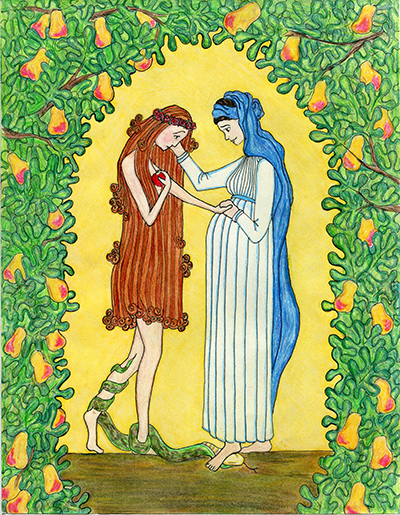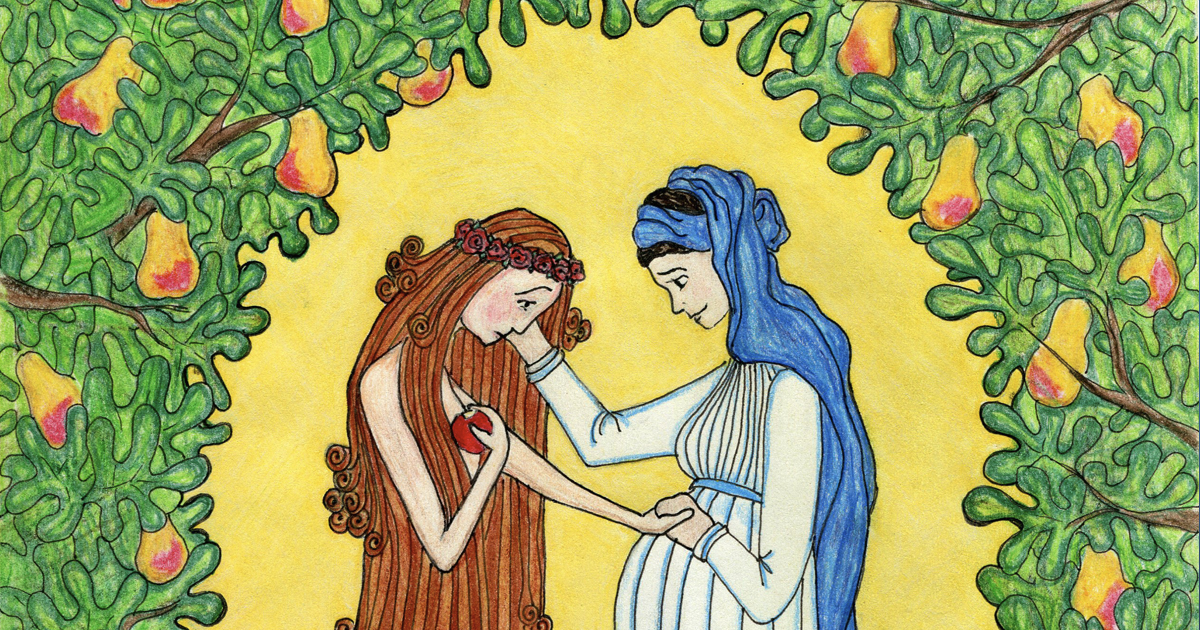When I approach the season of Christmas, I think about a baby: Jesus, the God-With-Us Deliverer that Israel is waiting for. But despite the beauty of sparkling Christmas lights, I can’t forget the poverty, division, racism and war that still weigh down the world. I find myself longing for this Deliverer, too.
O come, O come, Immanuel,
And ransom captive Israel
That mourns in lonely exile here
Until the Son of God appear.
This hymn, translated from Latin by John Mason Neale, is quite different from another seasonal song: Mary’s Magnificat:
He has come to the aid of his child Israel,
in remembrance of his mercy,
according to the promise he made to our ancestors,
to Abraham and to his descendants forever (Luke 1:54-55 NRSVUE).
The Magnificat is not a lullaby. It is a protest song. Mary witnesses to a God who delivers people from death and to life. God is the kind of God who overturns society by bringing down the powerful and lifting up the vulnerable, honouring instead of shaming them. Mary proclaims that God has shown compassion to her people from generation to generation (see Luke 1:50).
Mary is not the first woman to praise God through protest. And she’s not the only woman to participate in God’s plan of deliverance.
Think of Miriam, who participates in God’s plan by delivering her brother, Moses, from death when he was an infant (see Exodus 2:1-10). After her people are delivered from the shame of slavery, Miriam calls on all the women to “Sing to the Lord, for he has triumphed gloriously; horse and rider he has thrown into the sea” (Exodus 15:21 NRSVUE).
Think of Hannah, who participates in God’s plan by delivering her longed-for child back to God. As she herself is delivered from the shame of barrenness, Hannah sings,
The bows of the mighty are broken,
but the feeble gird on strength.
Those who were full have hired themselves out for bread,
but those who were hungry are fat with spoil.
The barren has borne seven,
but she who has many children is forlorn (1 Samuel 2:4-5 NRSVUE).
There are more songs and more women singing them. But now, in this season, we have Mary participating in God’s plan by delivering the Son of God.
 Mary and Eve never met—not in the world as we know it. But in this image by Sister Grace Remington, a Cistercian sister of Our Lady of the Mississippi Abbey in Dubuque, Iowa, the mother of humanity and the mother of Jesus stand together in a garden. Eve’s head is weighed down in shame. Her body hides behind her hair. The forbidden fruit—different from the garden fruit—remains in hand, the serpent still twisted around her legs. If she takes a step, she will trip and fall.
Mary and Eve never met—not in the world as we know it. But in this image by Sister Grace Remington, a Cistercian sister of Our Lady of the Mississippi Abbey in Dubuque, Iowa, the mother of humanity and the mother of Jesus stand together in a garden. Eve’s head is weighed down in shame. Her body hides behind her hair. The forbidden fruit—different from the garden fruit—remains in hand, the serpent still twisted around her legs. If she takes a step, she will trip and fall.
In colluding with the serpent, Eve participated in bringing evil into the world. Her descendants became destined to engage in perpetual cycles of war with the serpent, striking its head while it struck their heels (see Genesis 3:15). Because of this, Eve has always been shamed, even in our own minds. Shame, whether deserved, as with Eve, or undeserved, as with Miriam and Hannah, is oppressive. It diminishes a person, isolating her from community. Eve remains coiled up by evil. She cannot escape it.
But Mary has. Mary knows she bears the one who will deliver her and her descendants from the evil in the world. As an act of protest and participation with God, she ends the serpent’s life with a light step.
Mary’s most powerful act, though, is not how she strikes the serpent but how she touches Eve. Mary knows that Eve is not the source of evil. So, she brings Eve’s body of shame close to her body of deliverance. One hand strokes Eve’s reddened face. The other brings Eve’s hand (had it just been clutching the fruit?) to her pregnant body.
To be clear, Mary isn’t delivering Eve. But in consoling Eve, she participates in God’s work of deliverance. In her very posture, her warm presence, she makes God’s compassion real for Eve. She welcomes Eve out of shame and into relationship. Looking at Mary’s body, Eve sees that full deliverance is yet to come. But it is coming!
This Christmas season let’s remember that Mary was willing to participate with God. Let’s think about how we can participate by extending compassion to those who are vulnerable and shamed. And may our own Magnificat resound as we sing What Child Is This?
Nails, spear shall pierce him through,
The cross be borne for me, for you.
Hail, hail the Word made flesh,
The Babe, the Son of Mary (SASB 15).
Dr. Aimee Patterson is a Christian ethics consultant at The Salvation Army Ethics Centre in Winnipeg.
Illustration: Sister Grace Remington, Order of Cistercians of the Strict Observance








Leave a Comment